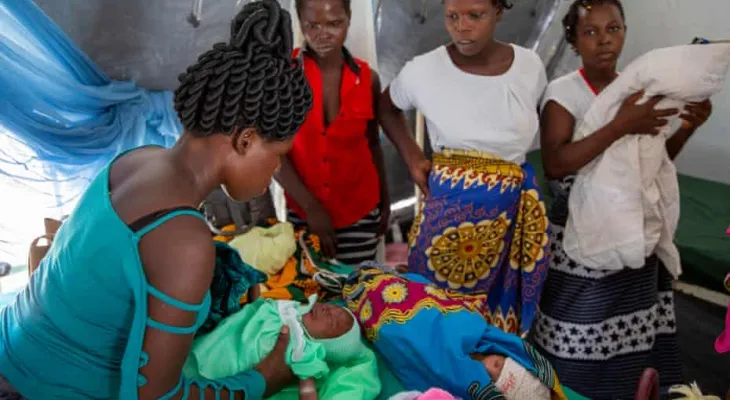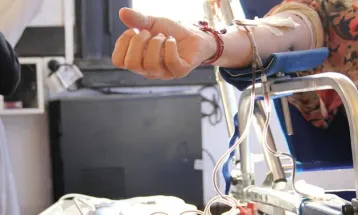
Climate crisis 'not gender-neutral': UN calls for policy focus on women
Only a third of countries include sexual and reproductive health in their national plans to fight the climate crisis, the United Nations has warned.
A report published by the United Nations Population Fund (UNFPA) and Queen Mary found that of the 119 countries that have published plans, only 38 include access to contraceptives and maternal and child health services, while reducing violence against women. Only 15 countries mentioned the University of London on Tuesday.
This report is the first to examine whether climate change plans are linked to sexual and reproductive health.
She calls on more countries to recognize the disproportionate impact of the climate crisis on women and girls and to do more.
Rising temperatures are associated with poorer maternal health and complications during pregnancy, such as gestational diabetes. Extreme heat has been linked to an increase in premature births and stillbirths.
The report says the climate crisis is exacerbating existing inequalities. For example, in eastern and southern Africa, tropical cyclones damage health facilities, reduce access to maternal health services, and contribute to the spread of waterborne diseases such as cholera.
Hurricanes and droughts increase the risk of gender-based violence and child marriage, as stressed families are unable to support and marry their daughters.
Angela Baschieri, UNFPA's population and development advisor and one of the report's authors, said: ``The Action Plan for Women and Girls shows that national plans can do more.'' .
“We know that climate change disproportionately impacts women and is not gender neutral, so we need to address these gaps and impacts.”
The report states: We highlighted countries that are taking action. Paraguay, Seychelles and Benin have emphasized the need to build climate-resilient health systems so women can safely give birth and access health services.
Nine countries, including El Salvador, Sierra Leone and Guinea, have implemented policies and interventions to combat gender-based violence.
Although there is evidence of disruption to family planning services during climate-related disasters, only Dominica mentions the need for contraception.
Vietnam is the only country that recognizes that child marriage is more common during times of crisis when families seek to reduce their financial burden (e.g. in Bangladesh, child marriage is more common during a year of heatwaves). Marriage among girls between the ages of 11 and 14 has been increasing year by year, and the proportion of marriage is about half (in March).
“Climate change is pushing us back in the fight for gender equality. Our goal is to ensure that climate change policies recognize the disparate impacts on women and take them into account in policy-making.” "We want to make sure that we're able to do that," Baschieri said.

















